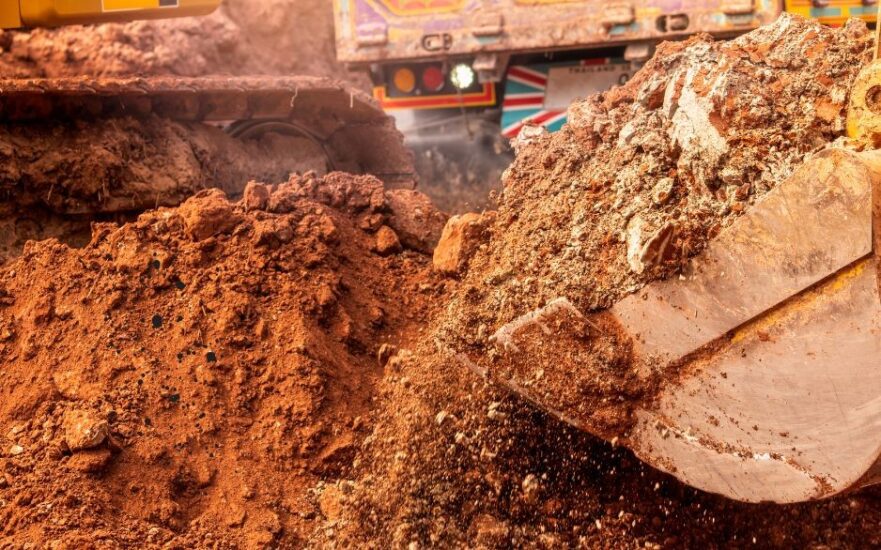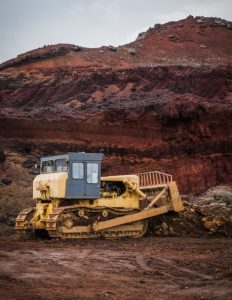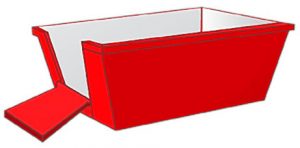Guaranteed Next Day Delivery!

Soil Removal in Melbourne – How to Get it Done
 When it comes to soil removal in Melbourne, many homeowners often ask whether we can excavate and remove soil directly from their property. Although we don’t perform excavation ourselves, we provide skip bins so you can manage and dispose of soil both safely and efficiently. Additionally, our skip bins allow you to plan your project on your own schedule.
When it comes to soil removal in Melbourne, many homeowners often ask whether we can excavate and remove soil directly from their property. Although we don’t perform excavation ourselves, we provide skip bins so you can manage and dispose of soil both safely and efficiently. Additionally, our skip bins allow you to plan your project on your own schedule.
Often, customers want to dispose of soil and grass together. In that case, it becomes classified as mixed heavy waste. Therefore, to save money and streamline the process, we strongly recommend separating soil from other waste types. Since soil is the most expensive waste to dispose of in Melbourne, separating it from recyclable materials such as concrete, bricks, and metal can significantly reduce your skip bin hire costs. Moreover, separating waste improves safety and efficiency during disposal.
By planning ahead, you make your clean-up project more cost-effective and efficient. Furthermore, separating waste helps protect the environment and ensures your soil is disposed of according to local regulations. In addition, this method prevents costly delays or fines at disposal sites.
Soil Removal in Melbourne | Which Projects Require Soil Removal?
Many projects result in soil removal, including:
- Deep ground excavations
- Driveway replacements
- Backyard or garden landscaping
- Hill cuts for road construction
- Building site scrapes on flat ground
- Trenching for new pipes
- Digging holes for fence posts
It is important to note that soil is heavy, particularly when compacted by a bobcat or excavator. Therefore, the largest bins suitable for soil typically hold up to 10 cubic metres. By planning your project with these limits in mind, you ensure safe and efficient disposal.
For professional soil excavation in Melbourne, we recommend Bailey Excavation & Civil. With their expertise, major soil removal projects are handled safely and efficiently. Consequently, you can avoid unnecessary delays and ensure compliance with local regulations.
How to Dispose of Garden Soil from Your Home
Residential soil removal in Melbourne varies depending on the project. For example, common tasks include:
- Plumbing projects that require digging up soil
- Gardening for trees and plants
- Landscaping – reshaping backyard or front yard
- Levelling out the ground
- Replacing driveways, fences, or installing new gates
 Mini skips remain popular for residential dirt removal, typically ranging from 3 to 4 cubic metres. Conversely, larger bins between six and ten cubic metres suit landscaping and bigger projects. By choosing the correct size, you prevent overfilling and can safely transport soil to disposal sites.
Mini skips remain popular for residential dirt removal, typically ranging from 3 to 4 cubic metres. Conversely, larger bins between six and ten cubic metres suit landscaping and bigger projects. By choosing the correct size, you prevent overfilling and can safely transport soil to disposal sites.
If your project involves a wheelbarrow, select a bin with a door. This way, you can easily wheel soil into the skip. For most home projects, the smaller 3-cubic-metre bin with a door provides a practical and convenient starting point. Additionally, it speeds up loading and reduces manual lifting.
Can Soil Be Mixed with Other Waste?
To comply with local regulations, do not mix soil with:
- Plaster
- Glass
- Plastic
- Chemicals (strictly prohibited)
- Insulation
- Asbestos (strictly prohibited)
- Cement sheets
- General waste
- Renovation waste
Keeping soil clean and uncontaminated ensures safe disposal, protects the environment, and avoids fines or rejection at disposal facilities. In fact, many disposal sites strictly enforce these rules.
Soil Removal in Melbourne – Disposing of Soil from a Building Site
For major excavation projects, contractors often require a soil report. Initially, they collect samples and test them in a laboratory to confirm the soil is clean. Afterwards, this certification ensures compliance with local regulations and maintains safety standards.
To learn more about the advantages of hiring a soil skip bin, read this page. By planning properly, choosing the right skip size, and separating waste types, you make soil removal in Melbourne simple, safe, and cost-effective. Moreover, you reduce stress and keep your project on schedule.
In summary, whether you tackle a small backyard project or a large excavation, taking an active approach to planning, separating waste, and selecting the right bin ensures a smooth soil removal in Melbourne experience from start to finish. Ultimately, careful preparation saves time, money, and effort.
